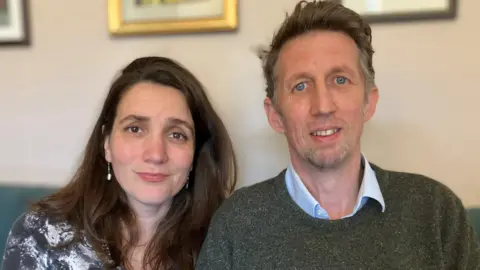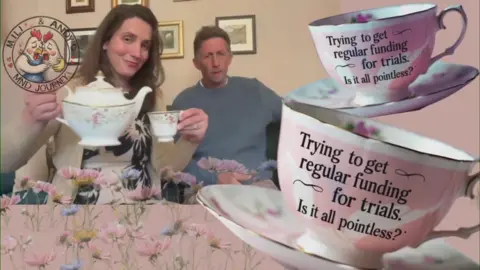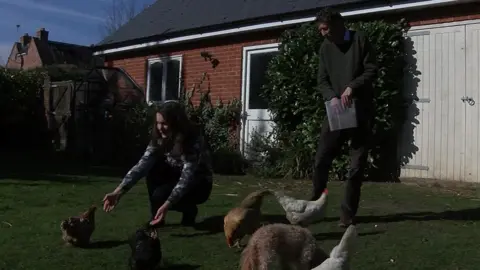'We promised our children we would seek MND cure'
 BBC
BBCAn NHS consultant with motor neurone disease said the condition had been "left behind" in research terms.
Andrew Davies, from Hartley Witney in Hampshire, was diagnosed with the terminal illness last autumn and has been told he only has a few years to live.
He and his wife Milica are campaigning for more funding to find a treatment as they feel motor neurone disease (MND) has been overlooked compared to other illnesses.
The Department of Health and Social Care said it would "continue to fund high-quality research" for MND.
 Andrew Davies
Andrew DaviesMr Davies first noticed an "instability" in his ankle whilst on a family holiday and it then developed into "twitching muscles".
Several months later he was told by doctors he had MND.
"It suddenly hit like a bombshell," he said.
"You step out of the diagnosis room and you meet the multi-disciplinary team, and then discussion is had about things like banking your voice [a process where individuals, often those with conditions affecting speech, record their voice to be used with communication aids]."

Mrs Davies said the couple had "promised" their two children they would "seek a cure".
"I think there's still an impression that it happens to a Rob Burrow, one person like that, every three months," she said.
"Well we need to know that in the UK, six Rob Burrows die every day of this disease".
Rugby League player Rob Burrow raised about £15m for research in to MND, prior to his death from the condition last year.
In April, four universities, including the University of Oxford received £1m each to carry out research into MND thanks to a charity set up by late Rugby Union player Doddie Weir.
Martina Hallegger leads the MND project being run in Oxford.
"There are currently no treatments and I think it is really important to have more funding in to this kind of research," Dr Halleggar said.
A spokesperson for the Department of Health and Social Care said: "Motor neurone disease has a devastating impact on people's lives and we are determined to find a cure".
"We are grateful to campaigners like Andy for the amazing work they continue to do, despite the personal difficulties they are facing, and will continue to fund high-quality research into motor neurone disease through the National Institute for Health and Care Research".
You can follow BBC Hampshire & Isle of Wight on Facebook, X (Twitter), or Instagram.
